Digestive disorders
Digestive disorders include
- Pancreatic disorders
- Oesophageal disorders
- Disorders of the gallbladder and bile ducts
- Liver disorders
- Gastric disorders
- Intestinal disorders
- Peritoneal disorders
- The category you were looking for was not found. Please try another one.
- List is empty.

Acute pancreatitis - inflammation of the pancreas
Acute pancreatitis (inflammation of the pancreas) is usually characterised by high intensity pain. What other problems does this serious condition bring with it? Why does it arise?

Appendicitis
Appendicitis is inflammation of the appendix, also called vermiform appendix, cecal appendix, vermix, or vermiform process. Appendicitis mainly affects children.

Ascariasis - hookworm, childhood roundworm
Childhood roundworm, or hookworm, is a parasitic disease. The disease is caused specifically by the hookworm parasite, which has entered the body most often through ingestion of contaminated food.

Celiac Disease
Celiac disease is a lifelong condition that requires the complete absence of gluten in the diet. You ask: Why? And what are the consequences of ignoring the diet and leaving the disease untreated?

Chronic pancreatitis - long-term inflammation of the pancreas
Chronic pancreatitis is a chronic inflammation of the pancreas that worsens over time. It causes permanent damage to the pancreas.

Colon cancer
Colon cancer (colorectal cancer) is a malignant tumour arising from the inner wall of the colon or rectum.

Constipation
Constipation, professionally called obstipation, is a health problem associated with defecation. How does this disease arise and how to treat it correctly?

Crohn's disease - Morbus Crohn
Crohn's disease is an inflammatory bowel disease. It causes many problems. Why does it occur and how does it manifest itself?

Diverticulosis
Diverticulosis and diverticulitis are common diseases, especially in developed countries. At age 40, it affects approximately 10% of people, over 60 years of age, 50%, and at age 80, the incidence is almost 100 percent. It mainly affects the large intestine and its sigmoid part.
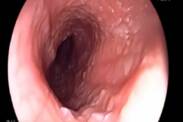
Esophagitis
Oesophagitis, also known as oesophagitis, is an inflammatory disease of the lining of the oesophagus. It takes place acutely or chronically. A common causative agent is oesophageal reflux disease. It also occurs as a result of chemical or thermal exposure or a nutritional error. It is manifested by pain on swallowing or heartburn.
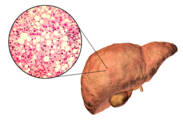
Fatty liver disease
Hepatic steatosis is a relatively common metabolic disease. The term steatosis refers to an increased state of fat accumulation. The latter is very often associated with alcohol. However, the latter is not the only cause of liver steatosis. The accumulation of fat results in impaired function of this important organ.

Flatulence
Flatulence, bloating, or abdominal bloating are problems stemming from the bowels due to excessive production of gas. The condition often occurs due to improper diet, food, or other organic causes, and even stress.
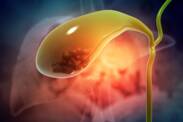
Gallbladder stones - cholelithiasis
Gallbladder stones are caused by the formation of concretions in the gallbladder or bile ducts. They usually do not cause any problems. When they become loose and block the bile ducts, various complications can occur.

Gastritis
Gastritis, gastritis is an inflammatory disease of the gastric mucosa. It occurs quite often. It can be acute or chronic. The acute form is caused by alcohol, stress, or poor lifestyle. The chronic form is frequent, leaving long-term changes in the gastric mucosa.

Gastroesophageal reflux disease - GERD, reflux, heartburn
Gastroesophageal reflux is a disease manifested mainly by heartburn. It seriously reduces the quality of life of the patient.

Haemochromatosis
Hemochromatosis refers to a disorder of excessive iron absorption in the human body. How does this disease arise and what are its first symptoms?
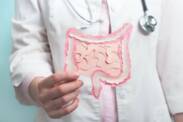
Ileus - intestinal obstruction
Ileus is a health problem related to the digestive tract. It is a disorder of intestinal patency. It is one of the so-called sudden abdominal episodes. In some cases, ileus is a life-threatening condition and requires early medical intervention. What are its main causes and how to recognize its characteristic symptoms?

Irritable bowel syndrome
Irritable bowel syndrome is a functional, not an organic, disease of the digestive tract. It is caused by a combination of various risk factors, such as stress. It is characterised by abdominal pain, bloating and difficult defecation. Treatment may or may not be simple.

Jaundice
Jaundice (icterus) is a yellowish discoloration of the tissues by an increased concentration of bilirubin: the bile pigment. Small increases (subicterus) can be seen on the sclerae (whites of the eyes) and soft palate. Jaundice is not a disease in itself, jaundice is a symptom of a disease.
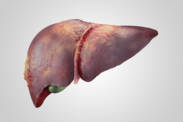
Liver Cancer
Liver cancer, also known as hepatic cancer and primary hepatic malignancy, is one of the most common cancers in the world. There are several known types of cancer. Hepatocellular carcinoma is probably the best known. Long-term liver disease, such as cirrhosis, is a risk factor for the development of this disease.









